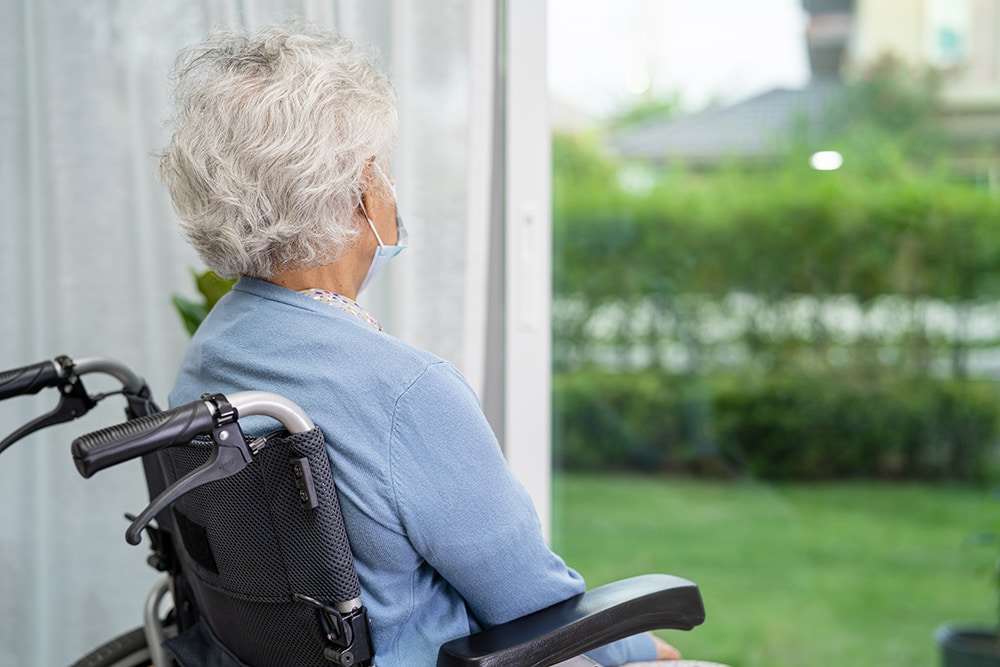
Are you or a loved one planning to move into a nursing home here in Charleston or elsewhere in West Virginia? Or do you already have a loved one that lives in an assisted living facility like this?
If so, it’s a good idea to learn about West Virginia nursing home resident rights. Being over-prepared and educated in case of any incidents will ensure you’ll know what caregivers and the facility can and cannot do so that you or a loved one can advocate for your rights if an adverse situation occurs.
Laws That Protect West Virginia Nursing Home Resident Rights
Federal and state laws mandate nursing home resident rights. The United States Department of Health and Human Services (DHHS) and the Center for Medicare and Medicaid Services (CMS) enforce federal nursing home resident rights laws.
Section 64-13-4 is the section of West Virginia Code that spells out assisted living facilities and their staff members’ obligations to uphold nursing home resident rights in our state.
Nursing Home Resident Rights
Together, federal and West Virginia state laws cover all the bases when it comes to nursing home resident rights. These laws ensure that all patients are equally offered the care and services they need and deserve.
According to Section 64-13-4.7 of the West Virginia Code, nursing homes must provide residents with written documentation describing their legal rights upon admission. The following are some of the legally protected rights of nursing home residents in West Virginia:
Respect
Nursing home residents have the right to respect and dignity. Nursing home staff shall respect and protect the dignity of residents by allowing them to make their own schedule and have agency over what they participate in.
Freedom From Discrimination
Federal and state laws protect nursing home residents from discrimination on the basis of their race, color, national origin, disability, age, or religion. All residents should have equitable access to quality care for their personal needs per written nursing home policies and procedures.
Freedom From Abuse, Neglect, and Constraint
Section 64-13-4.16.3(a) of the West Virginia Code states that residents are entitled to live free from:
- Verbal, sexual, physical, and mental abuse
- Financial exploitation
- Discrimination
- Denial of privileges
- Corporal punishment
- Involuntary seclusion
It also states that nursing homes should implement policies prohibiting the neglect and abuse of residents and the misappropriation of their property.
Section 64-13-4.16.1 mandates that residents shall additionally be free from mental and physical abuse and chemical and physical restraints except when a physician authorizes such restraint for a specified amount of time. There is an exception for emergency circumstances. If nursing homes violate any of these laws, residents have the right to file a complaint, and an investigation will be launched.
Complaints
Speaking of complaints, nursing home residents have the right under state and federal law to complain without having to fear being punished for doing so. Section 64-13-4.17 of the West Virginia Code lays out specific standards and procedures for how a nursing home should handle a complaint from a resident.
No matter the conditions, nursing homes must ensure they give careful consideration to each complaint. This means thoroughly documenting each complaint and following a set procedure of assessment and solution proposal.
Medical Rights
Every nursing home patient in Charleston and elsewhere in West Virginia has the right to be fully involved in decisions regarding their medical care. According to the CMS, this includes the following rights:
- Full access to total health status, records, and reports in a language the resident understands
- Full access to information about one’s own medical condition, prescription and over-the-counter drugs, vitamins, and supplements
- A choice of doctor
- Participation in developing one’s own care plan
- Right to appoint a legal guardian who has these rights on their behalf
- Refusal of experimental treatment
Financial Security
Nursing home residents have the right to manage their own money. Nursing homes must disclose all services and fees in writing before a resident moves in and whenever services and fees change.
The West Virginia Code cited above mandates that all residents’ funds shall be accounted for separately from one another to minimize the chances of co-mingling of residents’ and nursing home funds. Quarterly or upon request, nursing homes shall also present financial statements to their residents or legal representatives.
Section 64-13-4.10.7 of the West Virginia Code states that nursing homes must notify a resident’s next of kin to discuss initiating conservatorship or guardianship proceedings when they determine that a resident can no longer manage their finances. In other words, if a resident becomes unable to manage their own finances, their legal representative can do so for them.
Other Rights West Virginia Nursing Home Residents Have
The United States and West Virginia laws protect many other rights of nursing home patients. Other rights nursing home residents have center around:
- Legal representative notification of incidents
- Sufficient privacy, property, and living arrangements
- Visitor time
- Social services
- Freedom to leave the nursing home for visits or to move out
- Protection against unfair discharge or transfer
- Participation in resident groups
- Involvement of family and friends
- Documentation and written information in all scenarios
What To Do if a Nursing Home Violates Your Loved One’s Rights
If you believe your or a loved one’s rights were violated in a nursing home, you should take appropriate action. Some scenarios may warrant filing a direct complaint with the nursing home to make them aware of the violation and prevent it from happening again.
In more severe circumstances, such as medical malpractice, injury, or wrongful death, you may be eligible to file a lawsuit and receive compensation for losses. Contact a nursing home injury lawyer like ours at DiPiero Simmons McGinley & Bastress, PLLC to discuss whether a Charleston area facility violated your loved one’s West Virginia nursing home resident rights.







